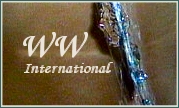

DIY Translation
by Carol Stocks
Do-it-yourself, or DIY, is a popular and growing trend. Many people have it down to a fine art and can turn their hand to almost anything. The rush of pride and the feeling of achievement upon standing back after finishing a job that would otherwise have cost a fortune if done by someone else – a professional – is fulfilling to say the least. But there are, of course, some things that could and should be left to the professionals – to people who really know what they're doing. We've all heard horror stories about DIY jobs gone wrong, and not just in home maintenance or car repairs. The DIY craze now has a firm grip on the business sector.
Let's look at translation, for example. Many businesses, large and small, invest great amounts of money, time and effort in obtaining professional services for their company presentations only to spoil the impact by taking the DIY route to translation. First impressions are lasting impressions, but it happens time and time again: a report or a publication is put out for translation, the translation wasn't cheap but it reads like fresh copy. When the publication hits the streets, it turns out that the title or the cover text 'blurb' was translated in-house at the last minute without running it past the translator who did the rest of the job. Now we know we shouldn't judge a book by its cover, but a shoddy cover suggests shoddy contents, and that isn't very impressive.
Examples of DIY translation are nowhere more visible than on the internet. Companies with professional, well-designed websites containing high-quality copy in their native language proudly boast an 'English' link (English being my obvious choice, but it could easily be another language). Click on the link and what do you get? Perhaps a text produced using an autotranslator and published without even a hint of editing, one penned (keyboarded?) by a very obvious non-native speaker or one by someone who writes passable English but completely misses the mark.
Why go to the trouble of having an English section if the quality of the translation doesn't live up to that of the original and serve your needs? Whether an English section is simply a trendy 'must have' or a serious attempt at attracting foreign business, it needs to be good. After all, it presents the company to the world beyond its domestic borders. And just as a poor presentation in a company's native language can be damaging to business, so can one in a foreign language aimed at a foreign market. If a presentation ends up being a source of entertainment and ridicule, then it has failed miserably and is better abandoned.
In many cases, the problem is less a lack of funds or simple stinginess and more a lack of judgement and poor perception. There's always someone in the company who either speaks or knows someone who speaks the target language. If you can speak the language, you can translate. Then there is the DIY translator who is quite simply convinced that his or her language skills are more than up to the job. And if that DIY translator happens to be the boss or a 'higher-up' in the company, then those lower down the rankings find themselves in a difficult position – even if you know better, just how do you point out the inadequacies of a superior's paltry efforts?
 Anyone who calls our office and asks us to put right what a DIY translator has got very wrong will hear that we don't provide that service and if we did, it would cost as much as having the translation done from scratch, if not more. So what's the answer? At the very least, have your translated presentations proof-read by a native speaker. Better still, have them edited by a native speaker who knows your business. But for the best results, hire a professional, native-speaker translator who specialises in your field. It has its price and you'll have to plan accordingly, but you'll get a quality product and will be far better placed to reach your target audience and clinch that all-important standing in your target market. What this equates to is that a quality, authentic-sounding translation is worth far more than the price you pay for it. And if we turn that around, a poor translation can cost you far more than you paid for it in terms of the damage it does to your image and the business it fails to attract.
Anyone who calls our office and asks us to put right what a DIY translator has got very wrong will hear that we don't provide that service and if we did, it would cost as much as having the translation done from scratch, if not more. So what's the answer? At the very least, have your translated presentations proof-read by a native speaker. Better still, have them edited by a native speaker who knows your business. But for the best results, hire a professional, native-speaker translator who specialises in your field. It has its price and you'll have to plan accordingly, but you'll get a quality product and will be far better placed to reach your target audience and clinch that all-important standing in your target market. What this equates to is that a quality, authentic-sounding translation is worth far more than the price you pay for it. And if we turn that around, a poor translation can cost you far more than you paid for it in terms of the damage it does to your image and the business it fails to attract.
If you're targeting a foreign market, take translation seriously – plan for it, budget for it and treat it as a business investment.
2005-03-27 by Carol Stocks, Wirtschaftswetter
Text: ©Carol Stocks
Picture: © Sabine Neureiter
Banner: ©Angelika Petrich-Hornetz
Infos zu <Datenschutz + Cookies
Back: International
Wirtschaftswetter
2003-2021 wirtschaftswetter.de
© Online-Zeitschrift Wirtschaftswetter
 Anyone who calls our office and asks us to put right what a DIY translator has got very wrong will hear that we don't provide that service and if we did, it would cost as much as having the translation done from scratch, if not more. So what's the answer? At the very least, have your translated presentations proof-read by a native speaker. Better still, have them edited by a native speaker who knows your business. But for the best results, hire a professional, native-speaker translator who specialises in your field. It has its price and you'll have to plan accordingly, but you'll get a quality product and will be far better placed to reach your target audience and clinch that all-important standing in your target market. What this equates to is that a quality, authentic-sounding translation is worth far more than the price you pay for it. And if we turn that around, a poor translation can cost you far more than you paid for it in terms of the damage it does to your image and the business it fails to attract.
Anyone who calls our office and asks us to put right what a DIY translator has got very wrong will hear that we don't provide that service and if we did, it would cost as much as having the translation done from scratch, if not more. So what's the answer? At the very least, have your translated presentations proof-read by a native speaker. Better still, have them edited by a native speaker who knows your business. But for the best results, hire a professional, native-speaker translator who specialises in your field. It has its price and you'll have to plan accordingly, but you'll get a quality product and will be far better placed to reach your target audience and clinch that all-important standing in your target market. What this equates to is that a quality, authentic-sounding translation is worth far more than the price you pay for it. And if we turn that around, a poor translation can cost you far more than you paid for it in terms of the damage it does to your image and the business it fails to attract.

